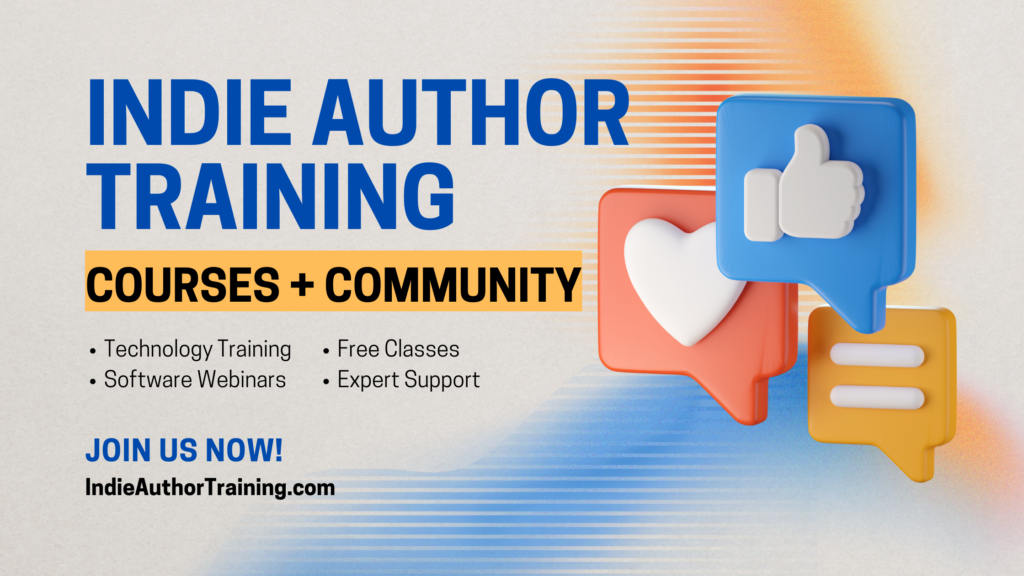Using Micro-Goals to Achieve Your Macro Dreams
Robyn Sarty
We often become overwhelmed when we focus on our big picture goals. But if we only consider what we accomplish each day, we’ll never know if we’re inching closer to our dream. Knowing both your micro- and macro-goals can help you focus and achieve more. Life coach and co-host of the Bestseller Experiment podcast Mark Desvaux says, “Goals help us make progress. We get to see our dream slowly materialize, word-by-word, page-by-page, chapter-by-chapter.” Building that puzzle, one piece at a time. But how exactly does goal setting help?
We had the opportunity to interview Audrey Hughey of The Author Transformation Alliance about her approach to goal setting and why she thinks it’s so important.
This interview has been edited for length and clarity.
Why do you think goal setting is so important?
Goal setting is important for many reasons. First and foremost, by simply considering the concept of goals, we are forced to think about the future and get clear on what we want in life. This presents a vital opportunity to apply our creativity so that we can design the life we desire and set up a plan to bring that vision to fruition.
When we undertake the work of setting goals, we are taking personal responsibility for our lives and our futures. This is a crucial aspect of empowerment because when we set goals and create plans, we must accept that we are in control (to a great extent) of our lives and what happens. We must work with what we have and from where we are, but—with the right motivation and personal accountability—our potential for growth and achievement extends beyond our wildest dreams.
Setting goals can help us (gradually) transform our behaviors and mindset in ways that foster success. Goal setting can alter your brain to change your behaviors and prime your brain to better recognize opportunities that support goal achievement (Compton, 2003).
Do you think micro- or macro-goals are more effective?
Micro- and macro-goals can’t be ranked in terms of importance. Not only does each writer need to develop a system that works best for them, but micro- and macro-goals should absolutely be intertwined. Think of a great oak tree. The macro goals are the roots and trunk, and the micro-goals are the branches and leaves. Begin goal setting by identifying your macro goals. These goals should be related to your vision for how you want to live each day, how you want your creative work to characterize your life, and what legacy you’re working to build. If you fail to understand your larger goals first, your micro-goals may end up simply being busy work that do not add meaning, value, or fulfillment to your life and the lives of your readers.
What are some tips you have for helping people achieve their goals?
Knowing every step to goal achievement is less important than having significant internal and external sources of motivation (Berkman, 2019). When your goal is fueled by substantial motivation, you are far more likely to enjoy better performance and outcomes. Get clear on why you want to achieve each of your goals; list your internal and external sources of motivation. Suppose the reasons on your list don’t light a fire inside your spirit. In that case, your motivations may not be strong enough to overcome poor habits, external circumstances, or life’s inevitable curveballs. Your goals should persist even in the face of hardship and adversity.
Differentiate between kinds of goals: process, performance, and outcome. Process goals are related to building discipline and, often, micro-goals, such as writing every day or posting daily to your favorite social media to grow your audience. Performance goals are similar to process goals but are less about building discipline and more focused on qualifying our efforts and measuring our progress, such as writing three hundred words each day or spending one hour each day learning Amazon ads. As the term suggests, outcome goals center on the successful implementation of your smaller discipline and qualifying goals. Examples of outcome goals include finishing the first draft, hitting a thousand followers on TikTok, or crossing a hundred preorders for your upcoming release.
Your goals should be derived from your ultimate vision for your life and are thereby inherently infused with meaning and purpose. Doing this allows you to set challenging goals, improve performance, and find more joy throughout the pursuit of your most important goals. If you find you’re struggling to achieve your small daily goals (micro-goals) take a critical look at those goals and how they feed into your larger goals. Ask yourself, How much do my goals matter if my fears, my distractions, my vices, or my current state of contentment or comfort take the wheel each day?
Do you have a trick, method, or system for helping you stay on track?
I believe there are three pillars for success when it comes to goal setting and planning: accountability, documentation, and flexibility.
The key to every success milestone I’ve experienced since 2015 is a weekly meeting with my accountability buddy. Additionally, you should share your goals with someone you respect, admire, or can’t stand to disappoint.
Write your goals down and use a planner. Many studies have shown the benefits of writing down your goals and plans. A recent study showed that university students who wrote down their goals experienced a 22 percent increase in academic performance, and the quality of their goal setting and planning increased the effect. Furthermore, researchers found that the kind of goal didn’t matter; regardless of whether students recorded academic or nonacademic goals, their performance improved, suggesting a “spread effect” of life goals. (Schippers et al., 2020)
Flexibility is too often overlooked in planning. The term the “planning fallacy refers to the common tendency to plan for things to go relatively smoothly. Be honest. Have you ever forgone goal-setting and planning because “it didn’t work the last time?” Instead of tossing out valuable tools that improve your performance and lead to greater levels of achievement, stay flexible and practice writing out various plans.
Ask yourself questions, such as, If everything goes smoothly, what will my launch numbers be? If life throws a curveball, what could my numbers look like? Will the world stop turning if that number is zero? If lightning strikes, and an influencer promotes my book, how amazing could my launch be?
The answers to these questions shouldn’t change your process and performance milestones or the micro-goals related to your launch. Instead, the purpose of answering these questions is to mentally prepare you for all that you can’t predict. Take every opportunity to lower your stress, increase your resilience, and build more internal stability to steady you through the highs and lows of this crazy authorship roller coaster.
Is there anything else you’d like to add?
Give yourself grace and forgiveness as you practice goal setting and planning. Every situation should be treated as an experiment to help you find what works best for you rather than a cold, scientific formula for success. Focus on infusing meaning and joy into your life and adding value (entertainment, inspiration, warm fuzzies) to your readers’ lives. We don’t achieve for the sake of achievement; we achieve because our internal and external motivations drive us to keep pushing, keep reaching, and never give up.
“Micro- and macro-goals are important to each other and completely interconnected, just like the wheels on a bicycle,” Desvaux says, reiterating the fact that we need both in order to accomplish what we set out to do. So dream big, and paint that picture of where you want to be by this time next year. But don’t forget to break down those goals into smaller pieces.
Audrey Hughey is a writing, research, and history nerd with a BA in English and an MA in Ancient and Classical History. She founded The Write Services and The Author Transformation Alliance to empower and inspire her fellow writers to infuse their lives with creativity, passion, community, and ever-growing success. Connect with Audrey at www.thewriteservices.com.






